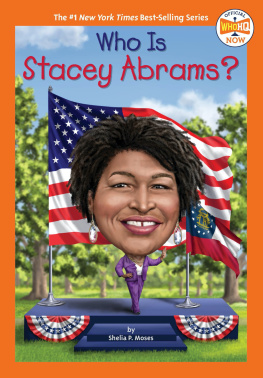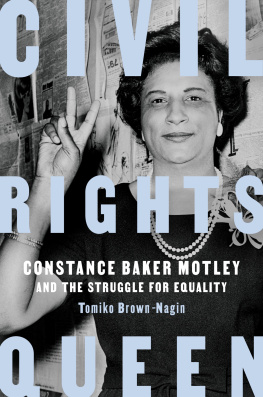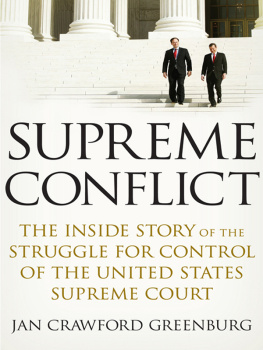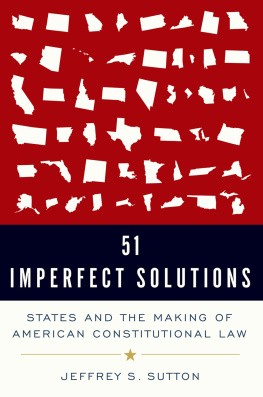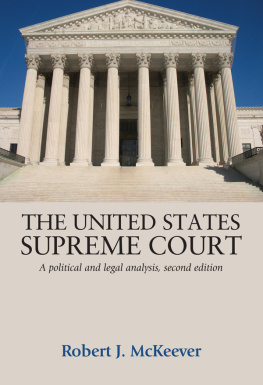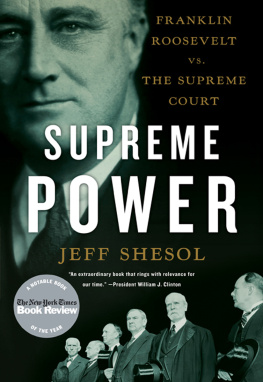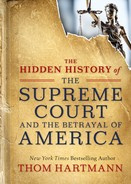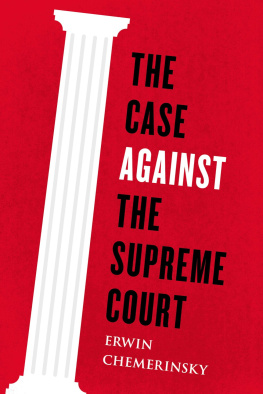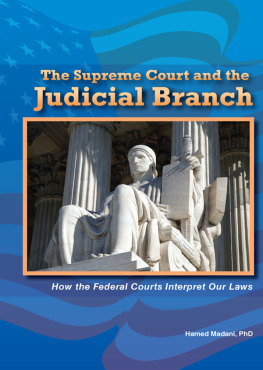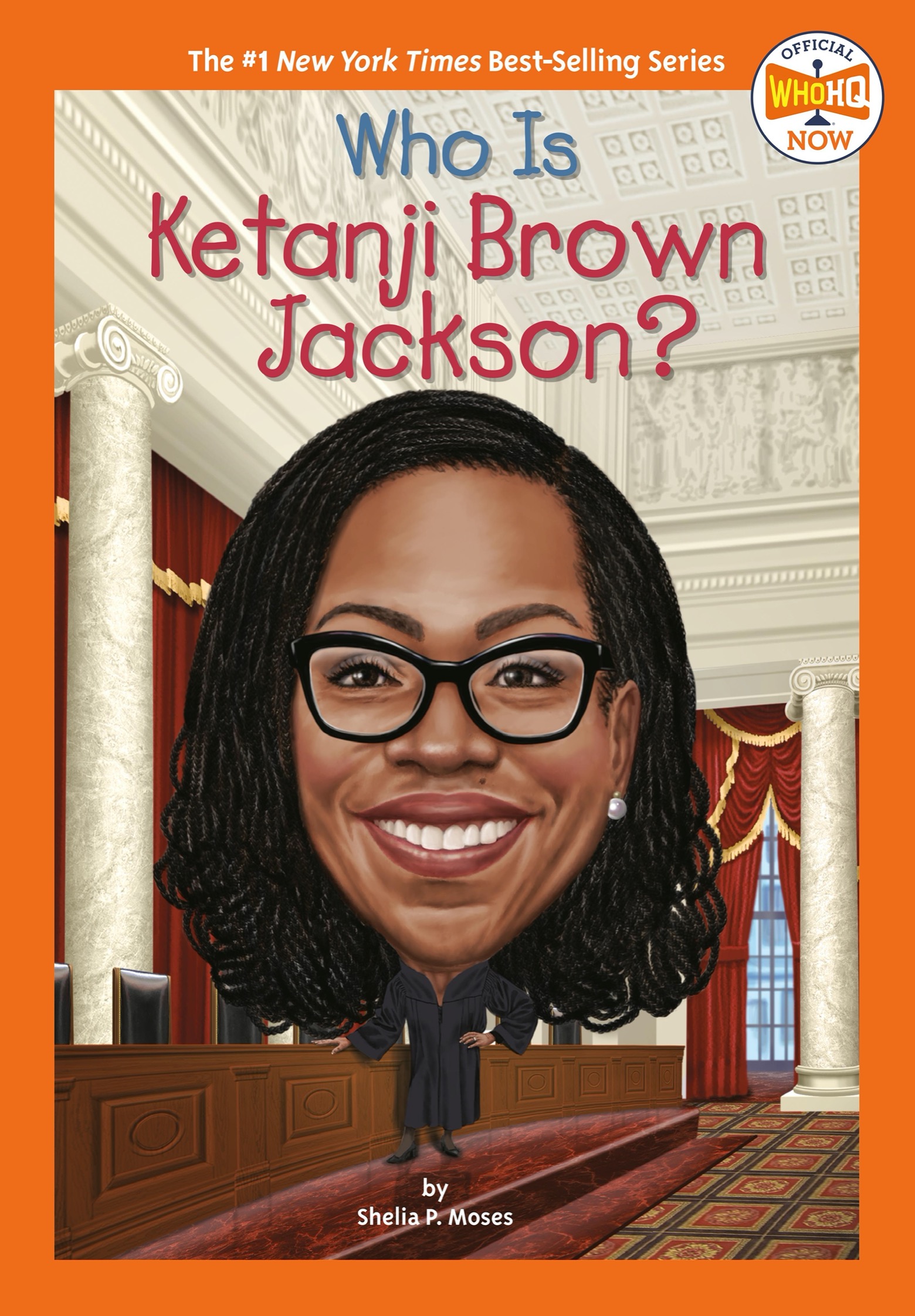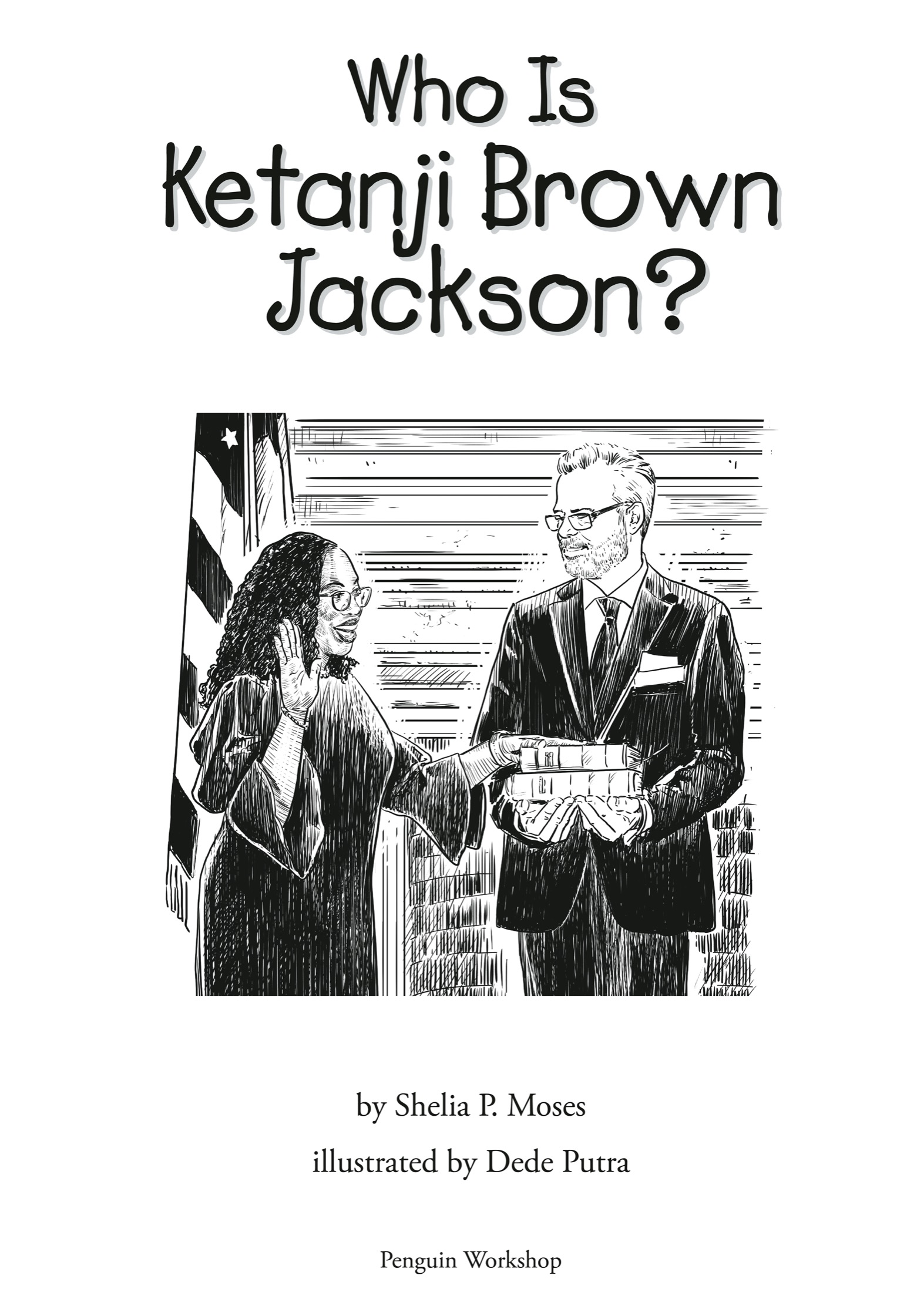Penguin supports copyright. Copyright fuels creativity, encourages diverse voices, promotes free speech, and creates a vibrant culture. Thank you for buying an authorized edition of this book and for complying with copyright laws by not reproducing, scanning, or distributing any part of it in any form without permission. You are supporting writers and allowing Penguin to continue to publish books for every reader.
PENGUIN is a registered trademark and PENGUIN WORKSHOP is a trademark of Penguin Books Ltd. WHO HQ & Design is a registered trademark of Penguin Random House LLC.
Visit us online at penguinrandomhouse.com.
Library of Congress Cataloging-in-Publication Data is available.
The publisher does not have any control over and does not assume any responsibility for author or third-party websites or their content.
Who Is Ketanji Brown Jackson?
April 7, 2022, was no ordinary day for Judge Ketanji Brown Jackson. She was in the White House, on her way to meet with the president of the United States, to learn if she would become a Supreme Court justice. The Supreme Court is the highest court in America. It decides whether new laws agree with the United States Constitution, which is the most important set of rules in the country. The Supreme Courts decisions affect the lives of millions of people. In the more than two hundred years since the Supreme Court was established, most of the justices had been white men. And only two Black men had been appointed justices. As Ketanji walked through the halls, she hoped she would become the first Black woman to take on this important position.
Inside the Roosevelt Room, Ketanji and President Joe Biden stood next to each other as they watched Vice President Kamala Harris, the first woman and first Black person to serve in the role, on the television screen. She was leading the confirmation hearings at the United States Capitol building and was almost finished reading the votes that would decide Ketanjis future.
After going through the votes, Vice President Harris said, On this vote, the yeas are fifty-three, the nays are forty-seven. And this nomination is confirmed. In that moment, history was made! Back in the Roosevelt Room, Ketanji and President Biden turned and hugged each other. There was no audio recording of what they said in that room, but a picture that was shared on social media showed how proud and excited Ketanji was.
Ketanjis dreams of becoming a judge one day had brought her to the highest court in the land. After her swearing-in ceremony, which would take place in a few months, she would officially become Supreme Court Justice Ketanji Brown Jackson.
Ketanji Onyika Brown was born on September 14, 1970, in Washington, DC. Her name was suggested to her parents by her aunt, who was living in West Africa. Ketanji means lovely one in the Swahili language. Ketanjis parents, Johnny and Ellery, who were both raised in Miami, Florida, wanted to become educators, so they moved to Washington, DC, in the late 1960s to attend college. Like many cities in the United States at the time, Washington, DC, was the site of a large number of protests held by Black people fighting for equality. Black people were being treated terribly by many white people simply because of the color of their skin. There were laws in place that made sure Black and white people were segregated (separated). The protests increased across the country after Dr. Martin Luther King Jr., a reverend and leader who fought for equal rights, was killed in 1968. But it wasnt until the end of the 1960s that the unfair laws were removed. Buildings in Washington, DC, were damaged during these protests, but the young couple decided to stay in the nations capital after they graduated so they could teach at public schools there.
In 1974, when Ketanji was four years old, the Brown family moved back to Florida so that Johnny could attend law school at the University of Miami. They also wanted to live closer to their families. They quickly settled into their apartment on campus. Ellery worked as a science teacher to support the family during her husbands days at law school. Years later, she became a principal at New World School of the Arts.
Since both of Ketanjis parents were educators, they taught her at an early age that school and learning were very important. By the mid-1970s, Ketanji had entered preschool and developed a love for reading. She spent her evenings at the kitchen table with her father and his stack of law schoolbooks. She colored in her coloring books while her daddy studied hard. As the years passed, she got her own set of schoolbooks and studied along with him. While Ketanji was still in elementary school, Johnny passed the bar and became a lawyer for the Miami-Dade County School Board. The whole family was very proud of him, especially Ketanji.
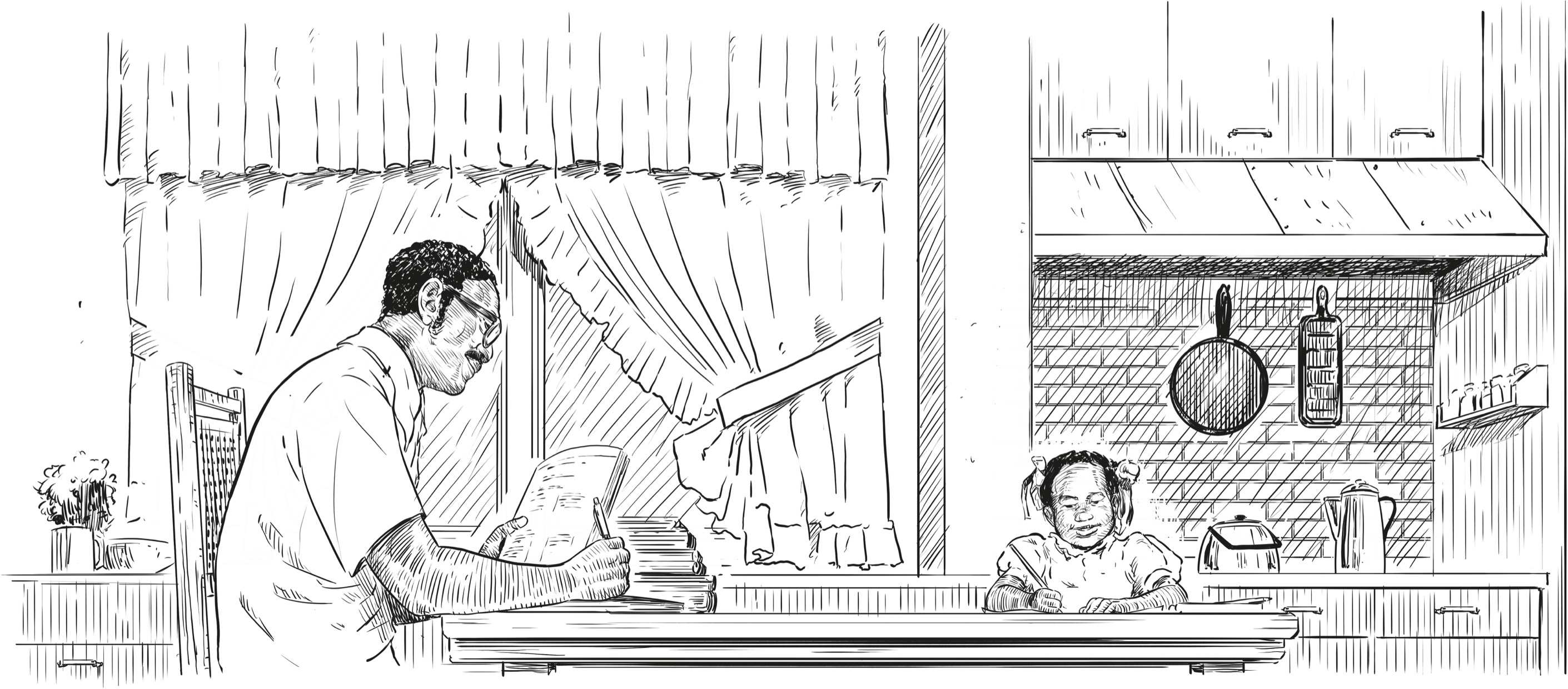
When Ketanji was ten years old, her baby brother, Ketajh, was born. Although there was a big age difference, she enjoyed being his big sister and spending time with him and their parents. The Browns needed more space, so they moved out of their apartment and into a house in the suburbs of Miami. The family filled their home with love, laughter, and, of course, books for the children. Even though Ketanji and her family lived in a majority white neighborhood, their neighbors were nice, and Ketanji became friends with many of the kids.
Ketajh and Ketanji both did very well in school. In junior high school, Ketanji joined the debate team and soon her teachers realized that she was a great public speaker. A debate is a competition where people make arguments for or against a topic, and judges decide whose argument is the best. Ketanji often won the debates she competed in, and so she joined the debate team when she went to Miami Palmetto Senior High School. Her debate coach, Fran Berger, was very committed to her students. She got up early to meet them before the school bell rang each morning so that they could practice. She and the debate team sometimes stayed after school and met on weekends to prepare for competitions. Ketanji was so good on the debate team that she won the 1988 national oratory title at the National Catholic Forensic League in New Orleans, Louisiana, when she was in the twelfth grade.
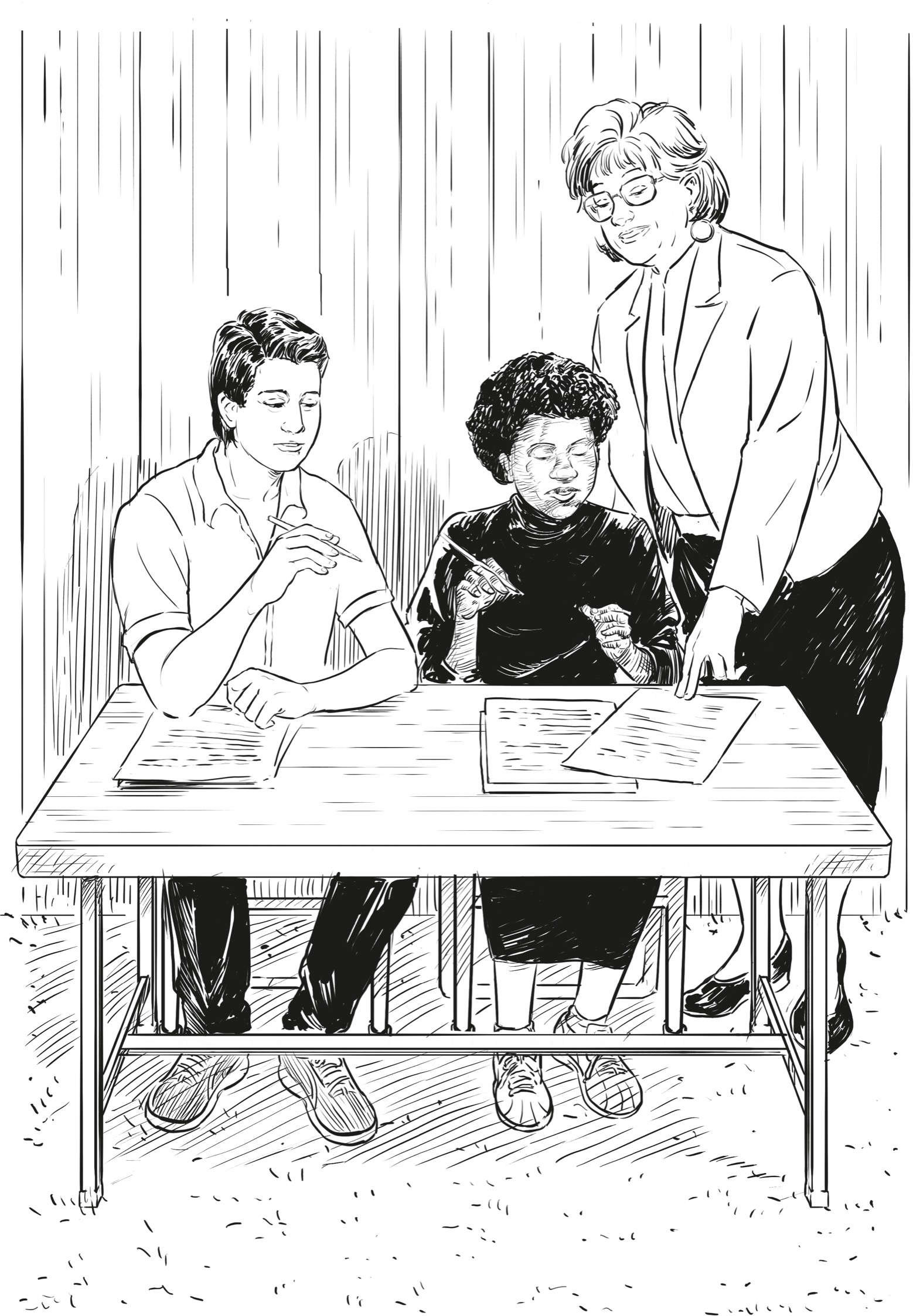
When Ketanji flew with her debate team to a competition at Harvard University in Cambridge, Massachusetts, she fell in love with the campus after just one visit. She later told her parents she wanted to attend Harvard after graduation. She also knew what she wanted to study at Harvard. She wanted to be a lawyer just like her father!


